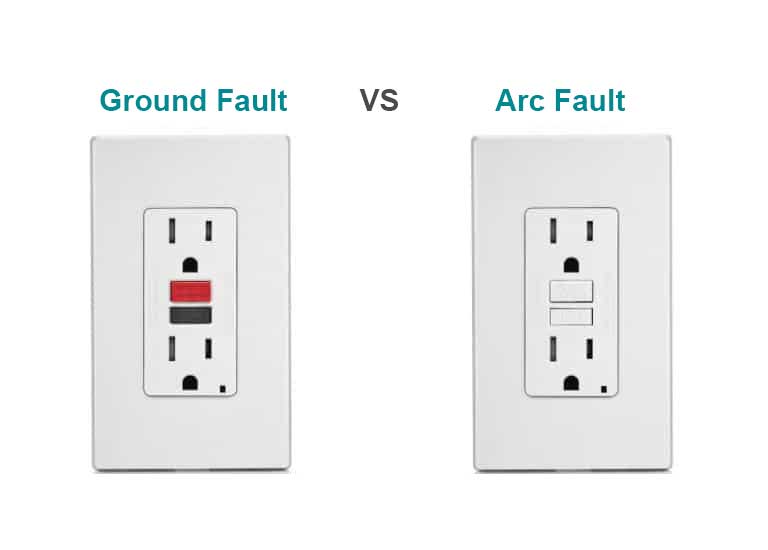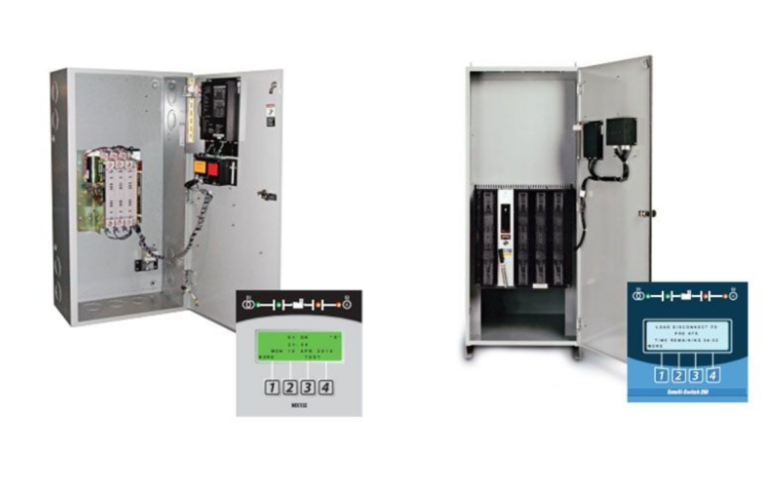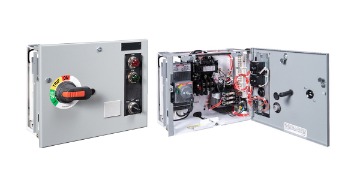What's the Difference Between a Ground Fault and an Arc Fault?
Ground faults and arc faults are two types of electrical faults that can occur in your home.
Both can be dangerous, but they’re caused by different things and happen in different ways. However, you can protect your home against both by using proper electrical equipment. The best way to protect against ground and arc faults is with GFCI and AFCI breakers and outlets.
Keep reading this detailed guide to learn all the differences between ground and arc faults and how to prevent them.
Ground Faults
A ground fault is caused by a break in the insulation around an electrical wire.
This can happen if the wire is damaged over time or not properly connected to begin with. When this happens, the electrical current can escape from the wire and flow into the ground. This can cause a shock or even a fire.
Arc Faults
An arc fault is caused by a break in the electrical current.
This can happen if two wires touch or a wire touches something that is not electrically grounded. When this happens, the electrical current can jump from one wire to another, causing a spark or heat, which can also cause a fire.
Ground Faults and Arc Faults Compared
The main difference between a ground fault and an arc fault is that a ground fault happens when the electrical current escapes from the wire.
Alternatively, an arc fault occurs when the electrical current jumps from one wire to another. Both can be dangerous, but an arc fault is more likely to cause a fire.
If you have any concerns about electrical faults in your home, you should always contact a qualified electrician.
|
Ground Faults |
Arc Faults |
|
Caused by leakage current |
Caused by electrical arcs |
|
Can cause electrical shock |
Can cause electrical fires |
|
Wet areas are at risk to ground faults |
Branching circuits are most at risk for arc faults |
|
GFCI circuit breakers provide protection |
AFCI circuit breakers provide protection |
How to Protect Against Ground and Arc Faults
The best way to protect against ground and arc faults are with GFCI and AFCI breakers.
You can install GFCI (ground fault circuit interrupter) outlets in your home or business to protect against ground faults. You can also install GFCI breakers in your electrical panel to protect the entire circuit. These outlets and breakers have a built-in breaker that will trip if there is a ground fault. One common use for GFCI breakers is to protect a hot-tub circuit in your home or business.
You can also install AFCI (arc fault circuit interrupter) breakers in your home's electrical panel to protect against arc faults. These breakers will trip if they detect an arc fault.
You can also have a qualified electrician inspect your home's electrical system for potential problems. They can install GFCI outlets and AFCI breakers as needed.
You Can Buy GFCI and AFCI Breakers From Bay Power Today
Ground faults and arc faults are two types of electrical faults that can occur in your home. Both can be dangerous, but they are caused by different things and happen in different ways. You can protect your business and building from ground and arc faults with GFCI and AFCI breakers and outlets.
Bay Power has a wide selection of GFCI and AFCI breakers for your home. We also have qualified specialists who can help you select and install the correct breaker for your needs.
Contact us today to learn more about our products and services.




